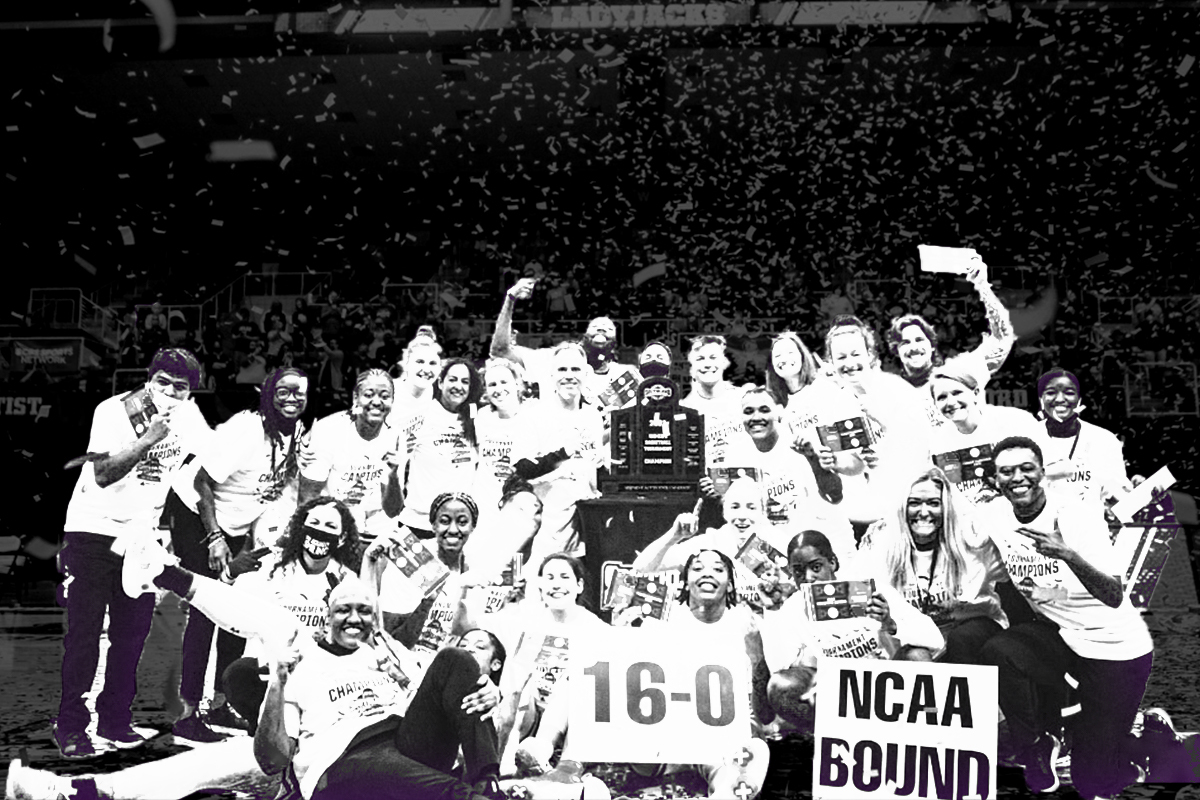On March 14, Stephen F. Austin minted an NFT to commemorate its women’s basketball team’s Southland Conference Tournament championship.
Wally Crittenden, the department’s assistant athletic director for ticketing and business development, described it as a “moment” to FOS. The NFT showcased the team’s celebration and included stats and information about the season.
Especially for athletic departments still recovering from the pandemic, NFTs could provide both a new revenue stream and marketing opportunity.
Range of Revenue Potential
In some cases, athletic departments with robust content teams may already have the tools to mint their own NFTs. That was the case for the Ladyjacks: An in-house content creator made the video, and then Crittenden minted the NFT and put it on TheFanBlock.com, where it went for $100, he explained.
Athletic departments can also sell content that already exists, like social posts. Ohio State Football put its first-ever tweet up for auction on March 12, and bids have reached $850.
NFTs could provide new marketing innovations, too. Crittenden used the example of giving out foam fingers at a game. It may cost $1,000 for a department to buy and distribute them, but giving fans in attendance an NFT instead may be cheaper.
“We want to make NFTs as, if not more, affordable than promotion line items in current budgets,” Crittenden said.
Growing Interest
Crittenden also co-founded a marketing innovation company called Modern Sports Group, which is looking to help athletic departments mint NFTs. (The platform where the Stephen F. Austin NFT went up for auction was created by Modern Sports Group.)
And schools are intrigued: Crittenden has already spoken with “leagues and institutions” in Division I and Division II about minting NFTs. “I think there will be waves of interest,” he said.
As fans become more aware of NFTs, and schools begin minting types that capitalize on the specific interests of those fan bases, value will grow.
“Every athletic department is going to have their own community, their own ecosystem that they can tokenize,” Crittenden said.







![[Subscription Customers Only] Jun 15, 2025; Seattle, Washington, USA; Botafogo owner John Textor inside the stadium before the match during a group stage match of the 2025 FIFA Club World Cup at Lumen Field.](https://frontofficesports.com/wp-content/uploads/2026/02/USATSI_26465842_168416386_lowres-scaled.jpg?quality=100&w=1024)
![[Subscription Customers Only] Jul 13, 2025; East Rutherford, New Jersey, USA; Chelsea FC midfielder Cole Palmer (10) celebrates winning the final of the 2025 FIFA Club World Cup at MetLife Stadium](https://frontofficesports.com/wp-content/uploads/2026/02/USATSI_26636703-scaled-e1770932227605.jpg?quality=100&w=1024)








